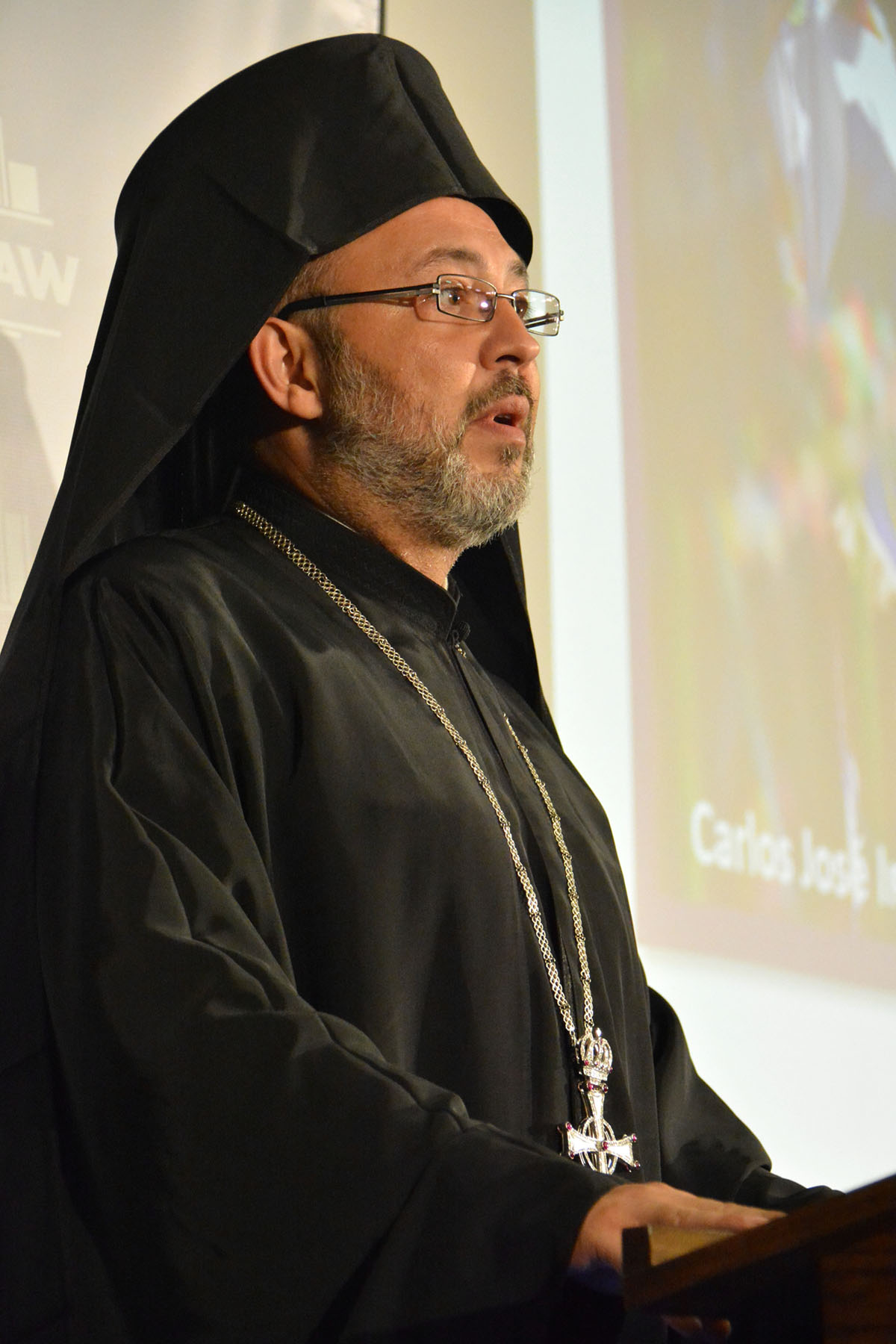Symposium 2016: Second Plenary Session – Minorities, Majorities and Religious Rights

By Gaylee Coverston
In the Second Plenary Session: Minorities, Majorities and Religious Rights, Gary B. Doxey, Associate Director of the International Center for Law and Religion Studies, acted as Moderator. He began the session by ceding time to Tassaduq Hussain Jillani, Former Chief Justice of Pakistan, who then presented his paper on “The Interplay of Majority and Minority Rights and the Role of Judiciary.” He mentioned that the declared commitment of the international community to promote the protection of universal human rights is seen through cooperation and collaboration of various entities of economic, political, scientific, and research interests. Fear of government imposed religion prompted those creating the United States Constitution to include the establishment clause where government cannot impose a religion on the populous. This began the establishment of religious freedom and became the example for democratic nations. The concern for the protection of religious rights and minorities reached global recognition and required a global judicial response rights after World War II in response to the atrocities of the Holocaust resulting in the UN Declaration of Human rights. Nations realized that peace would be illusive until tolerance became the norm. Good government and good law are intertwined, however, independent judiciary enforcement is necessary to maintain human rights laws. He discussed situations in countries like China and the difficulties and persecution they face. Freedom of religion is a comprehensive term that includes freedom of conscience, thought, expression, belief and faith. The right to profess, practice and propagate belief must be available, to groups as well as individuals. He discussed some current religious freedom issues and cases in Pakistan: lawyers and judges have been assassinated for protecting religious freedom, religious minorities have been subjected to discrimination. He also spoke of Article 20 of Pakistan’s constitution which declares equal religious protection for all citizens, secondly the right to worship as a group, right to religious freedom is available to all. He then clarified the function of supreme courts in the protection of minority right and religious freedom. Political aspects of religion have been rife with conflict. Judiciaries in different regions must address regional issues as the courts are the custodians of people’s rights. The supreme court in a democracy must act as a pedagogical institution to promote constitutional literacy. This is essential if democracy is to be maintained. He then went on to explain that liberty lives in the heart of men and women. If it dies, no constitution, law or thought can overcome that. Judiciary is not enough to protect the rights of citizens. Believers of every faith must take responsibility for supporting and maintaining laws in their own sphere, irrespective of our situations. As Citizens we must demand “justice for all.” Justice Jillani then showed a brief video entitled “Justice for All.”
Following Justice Jillani, Ana Maria Celis Brunet, Law professor at the Pontifical Catholic University of Chile and President of the International Consortium for Law and Religion Studies, presented her thoughts entitled “Latin America: The Challenge to Collaborate in a Christian Scenario.” In many countries in Latin America there are two facets to religious freedom: the promotion of the right itself and the minimum standard to be a part of the state. Sometimes, it seems that there are no problems in areas where the Roman Catholic Church has traditionally ruled in the creation of countries. Conflict seems minimal. However, the greatest issue is found in the institutional power of a specific religion rather than freedom of belief. Traditional religious artifacts in governmental buildings and institutions causes conflict between different Christian entities more often throughout Latin America than actual persecution for a specific creed. Pagan practices and beliefs have found space in traditional Christian faiths as well as Indigenous concepts. Many Latin American countries have an agreement with the Vatican to maintain autonomy of faith. These countries have developed legislation to recognize various religious organizations. Only Costa Rica still has the Catholic Church as a state religion. Non-discrimination laws have increased as well, improving the state of religious freedom in Latin America. Agreements between religious organizations and the state seek to work on social problems and legislation of current social issues such as abortion, same-sex marriages, etc. This has created an ambiance of collaboration and has brought together many religious organizations. Professor Brunet also spoke of the advances the protection of religious and other human rights for native cultures. However, these rights are not respected by all people and continuous work is needed.
Father Aimilianos Bogiannou, the Very Reverend Archimandrite, who represents the Ecumenical Patriarchate of Constantinople and works in the Liaison Office of the Orthodox Church to the European Union, presented next, “The Practice of Applying Religious Freedom in Modern Day Multicultural Society.” He gave a brief history of the Orthodox Church and its efforts in the transformation of the gospel, always with the intent to respect and to offer equal treatment of other religions. The most essential aspect of applying religious freedom in our global society is real substantial dialogue. Real dialogue does not mean submission to another’s ideas. We must honestly communicate, seek a shared understanding and suspend assumptions. We cannot learn about one another if we do not communicate. We must foster a spirit of reconciliation and mutual trust as we pursue peaceful solutions to current issues. This process takes time. Father Bogiannou continued by quoting from the Bible. Be “quick to listen and slow to speak.” Although social exclusion of minorities is increasingly common and stems from lack of understanding, with patience and diligence in pursuing real dialogue we have the chance to find peace despite our multicultural differences.